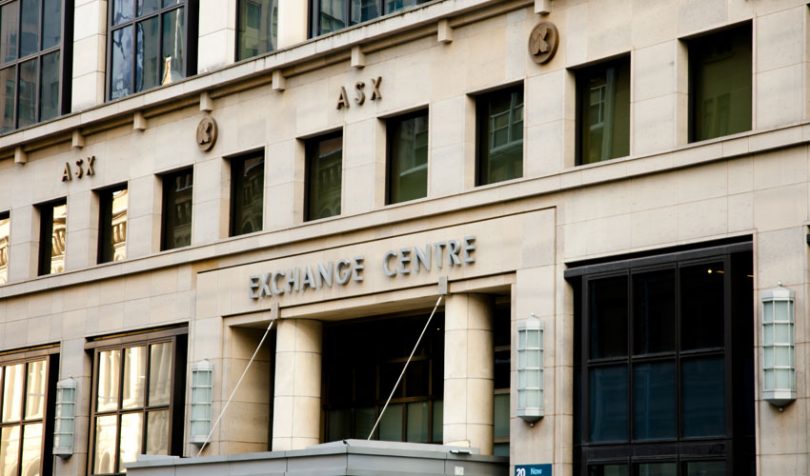The Australian Securities Exchange (ASX) is working with Digital Asset on a blockchain replacement for its post-trade clearing and settlement system, CHESS with a view to launching in 2021. Ten days ago Ledger Insights heard rumblings about pushback from members who aren’t convinced about the benefits. It turns out some of those players were sufficiently unhappy to commission a report from Deloitte.
The Australian Financial Review (AFR) got hold of a copy of the report and noted that it might be of interest to the market regulators and the competition commission. Specifically, because Deloitte stated that “mechanisms to manage conflicts of interest and use of market power have not been addressed in a transparent manner.”
Market Power
“There’s the viewpoint that CHESS currently operates as a natural monopoly,” said Jonathan Perkinson the Deloitte partner who authored the report. “But there’s a concern that monopoly market power is being used to extend that natural monopoly into other currently competitive post-trade settlement spaces.”
Two of the several report funders are major share registry companies, Computershare and Link Administration. ASX’s new CHESS system is arguably quite disruptive for the registries. The companies already expressed many of their concerns during the ASX round of market consultation last year.
Link’s letter published on the ASX website states: “We believe that steps should be taken to ensure Issuers are protected from future fee increases that may take place if record keeping is centralised in the short term and competition lessened.”
Similarly, Computershare’s consultation response says: “ASX’s proposals reach significantly beyond a technical system upgrade and replacement for CHESS and instead present a reconfiguration of the commercial services performed by various market actors, centralising roles and functions at ASX that are currently provided by competitive commercial service providers.”
The companies’ concerns extend beyond competition issues. Computershare asserts a lack of financial analysis about the claimed benefits. Plus it says issuers were in fact not broadly consulted, and when they did engage “some clients who attended the sessions advised us that they felt they were ‘talked at’ as opposed to being ‘consulted with'”.
Computershare’s letter also claims that issuers have concerns relating to the risks of extending ASX’s monopoly, the role of regulators, privacy concerns for shareholder data, data ownership and control.
The AFR article raised questions about the independence of the report because Deloitte is an investor in SETL, a potentially competitive platform. SETL is currently in voluntary administration, a UK insolvency process. Ledger Insights can confirm that Deloitte owns a relatively immaterial amount of roughly 1% of SETL. However, as of last July Computershare held 10.8% of SETL’s shares.
Disruption is painful
Two challenges are likely to come up in many major blockchain initiatives. Firstly, these kinds of projects involve a variety of industry participants, and there’s a need for each type to be incentivized. Secondly, many companies are middlemen and to address threats posed by distributed ledger technology (DLT), senior management needs to assess where their organization adds value. Otherwise, it may be disrupted.
If one set of participants is being disrupted, then it will be hard to incentivize that group. And those that face displacement are likely to complain loudly.
With respect to consultation, ASX appears to have put considerable effort into it. It’s not a simple task, so it’s hard to get right. There’s also the risk of too much feedback resulting in paralysis.
One observation is that the ASX only published non-confidential feedback. Unless we missed it, there was not a single published response from an investment bank or market making participant. It’s conceivable that’s because they value confidentiality so highly. However, there are some views from BNP Paribas expressed in a video elsewhere.
ASX response
Back to the Deloitte report, an ASX spokesperson told Ledger Insights: “ASX has not seen, nor did Deloitte consult with ASX on its report. We continue to engage extensively with the market, which has been and continues to be positively involved in the process. We have received excellent input into the design of the replacement system from a broad range of stakeholders. The 50 features we are delivering have been requested by the market, for the market. ASX continues to listen and remains open to feedback.”
“ASX’s focus is on delivering the features and efficiencies that the market has asked for and which will ultimately benefit issuers, investors and broader users of the DLT-based system.”
Perhaps the most significant benefit of the new CHESS system is doing away with the costly reconciliation by having a “single source of truth”.
It’s not a blockchain. It’s a DLT. Or is it?
The contradiction is that “distributed” ledgers can be highly centralizing because there’s a single shared ledger. But the ASX CHESS case takes it a step further because there is no consensus mechanism.
A Digital Asset (DA) spokesperson confirmed to Ledger Insights that “we are delivering a permissioned DLT infrastructure to replace CHESS that does not use the consensus protocol to verify transactions.”
That means ASX is the only participant with the ability to write to the ledger. Other DLT nodes have read-only access to the transactions in which they participate.
It’s not a bug, it’s a feature. Digital Asset’s (DA) technology stack has two facets, the ledger and the DAML smart contract language. And both were designed with market infrastructures in mind. The technology recognizes two roles, the operator and the participants. It’s possible to have multiple operators, and in those cases, consensus is implemented.
From Digital Assets documentation: “For centralized market structures, such as those with a CSD or CCP, distributed writing is not necessary to achieve the benefits of a Distributed Ledger. Even for bilateral or OTC market structures, it is likely that the appointment of a trusted market utility as a transaction validator may be a less risky and more performant alternative to a multi-Operator solution in the near term.”
In one of the consultation responses on the ASX website, Annabelle Simpson expressed a concern that a lack of consensus might impact security. Digital Asset says the opposite: “Relying upon a Consensus Algorithm potentially expands vulnerability by increasing the opportunities for network exploitation and would likely be more challenging for regulators to approve in the near term.”
To date, most semantic debates have been about using the term blockchain to describe distributed ledgers that don’t have blocks.
Simpson challenged the DLT label: “It is my general submission that the CHESS replacement system does not qualify as a distributed ledger. Therefore, if the term is to be utilised for promotional purposes then an explicit disclaimer regarding the system’s characteristics should be communicated.”






